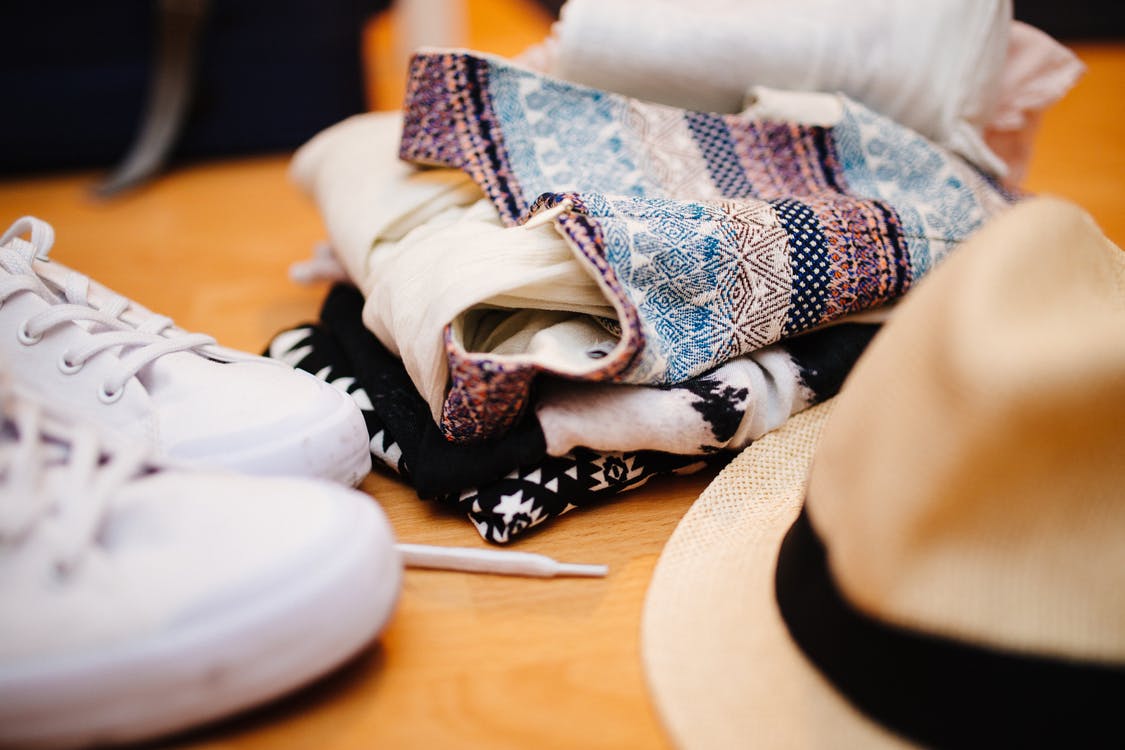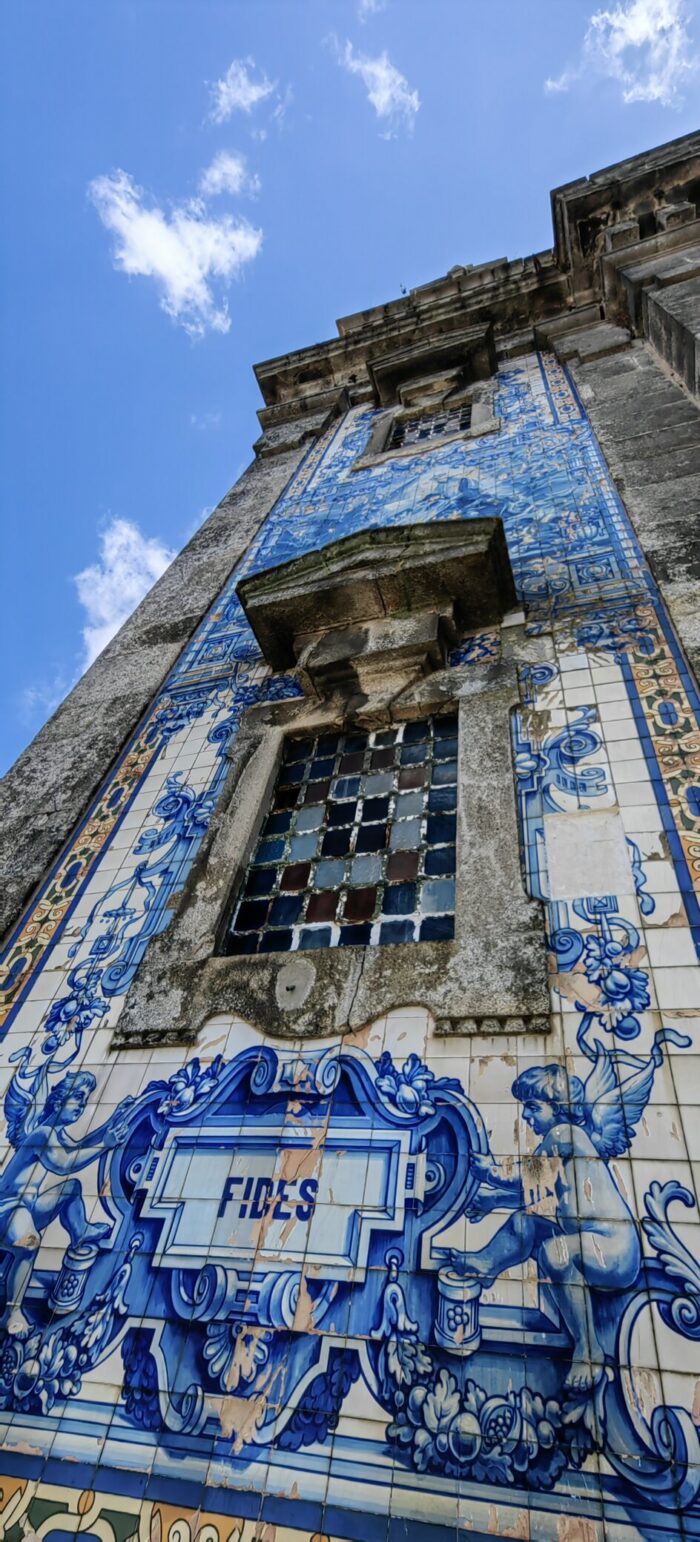
Recently, I decided to make the move from working full-time to backpacking full-time. I’ve backpacked through Europe before, but after I established a life for myself in Austin for two years, I had to do a purge that would allow me to fit my belongings in some checked bags. I was able to get some help leaving an extra suitcase or two at my parents’ house, but after July 5, my world is my backpack again.
When I moved out of my apartment in May, I was stuck with a familiar question: What do I keep? What gets left behind?
Even if you’re not planning an extended backpacking trip anytime soon, you’ve probably asked yourself similar questions while assessing your piles of stuff. In most people’s experience, doing a major purge helps free up both physical and mental space. Indeed, decluttering and embracing a minimalist lifestyle seems to be catching as more and more people turn to reducing their belongings as a way to confront wasteful materialism, become more eco-friendly, and gain clarity about their life’s purpose. Hopefully, the lessons I learned from project backpacking will translate to any of your efforts to minimize.
How To Decide What is Important
During the two years that I lived in Austin, I knew that I would eventually have to pack everything up. I lived in the tiniest room of my apartment and only furnished it with a borrowed twin bed and a $16 bookcase that moved into the living room when I moved out. Even so, I managed to bring stuff from my parents’ house after holidays, buy new clothes for the seasons, and collect books that I knew would only become a nuisance later on. So when it came time to minimize, I had to implement a few different strategies.
Does this add value to my life?
A few months ago, I watched Minimalism: A Documentary. The story of Joshua Fields Millburn & Ryan Nicodemus has stuck with me as I packed for flying home and for Asia. The minimalists continue to ask themselves one question as they are sorting through their possessions: Does This Add Value to My Life? The answer isn’t the same for every possession and everyone. A scrapbook of college memories may add value for some but may be considered clutter for others. The “little black dress” may be enormously valuable to someone who goes out but not so much if you tend to stay at home.
This question is pretty broad, and while I navigated packing for a specific backpacking trip, I had to delve a little deeper and ask myself the following questions about value:
Name Three Times When You Are Going To Use This: How many times have I held onto a costume or a specific dress for “just in case” themed parties? A cringe-worthy amount of times. Those items need to go. Think seriously about when you are going to use each item that you’re packing. It’s easy to pack a dozen pair of shoes for a dozen occasions, but is that ultimately serving you?
What Else Is Fulfilling This Need? So you can wear a shirt or a pair of jeans once a week for the next three weeks, but that doesn’t mean that you should pack or keep it. Think about the purpose of each item in your backpack or wardrobe. What is that purpose serving? Then look at the items you are keeping. What else is serving that purpose?
Where Can I Get This Item? (This question applies specifically to travel purposes.) Disposable items like toothpaste or bedsheets don’t need to fly with you. When I backpacked through Europe, I barely brought any cosmetics. I knew that my first “tourist attraction” in London would be the three-story Lush on Oxford Street. I checked out the products that I would be checking out or buying at the store and refrained from bringing similar products (specifically, toothpaste and deodorant, among others) in my bag. Think about where you are going and whether or not you’ll have access to those items when you’re traveling.
The Fun of Getting Rid of Your Stuff
One of the reasons I find myself holding onto stuff is that I hate throwing things away. I hate waste! Sending old stuff off to the dumpster doesn’t leave everyone with a warm and fuzzy feeling.
So how can we feel good and shrink the amount of possessions that we own? Last May, when I was moving out of my apartment, I made a party out of it. I bagged up all of the clothes, books, shower gels, and decor that I was giving away, and invited my friends to do the same. We laid out all of the things we wanted to give away and had a big swap party! It felt really nice to see friends get excited about the body pillow I was giving away or shirts that didn’t fit anymore.
I also took suggestions from thrift shops or charities that needed the leftover items. Within a few days, everything that needed to go found a good home.
Now, the Hard Part: Not Buying Anything
When I backpacked through Europe, I was lucky enough to be in Copenhagen during Fashion Week. Not only was I surrounded by models (although something tells me that’s every week in Copenhagen), but I was also able to attend a really awesome clothes swap. I brought pairs of jeans and shirts that weren’t serving me anymore and was able to exchange them for shorts and an outfit that I continued to wear throughout my trip.
The hardest part of living out of a backpack is putting on your blinders to new clothes and things. After all, you have a limited space. Cycling out clothes at clothes swaps or just being generous (my favorite pair of pants was given to me by a backpacker who was getting rid of stuff on her way out of a hostel) are necessary on the road. Collect memories, not mementos. Your best life comes without a price tag.
If you’re implementing a minimalism project at home, it can be just as challenging to avoid adding new things. Shopping is a social pastime and often a way to destress. If you find yourself with the shopping bug, ask yourself why you have the itch to acquire new things–are you bored? Anxious? Trying to distract yourself from something that’s plaguing your mind? Then consider ways to address what’s bothering you in a more productive, healthy way. Also, remember the common advice that we’re happier when we spend money on experiences than possessions. Ask yourself what you’d like to do, not what you want to have.
Have you undertaken a minimalism project in preparation for travel or other life adventures?
Also by Megan: How I Backpacked in Europe for Three Months Eating Vegan
Related: How Paris Turned Me On To Minimalism & 4 Ways to Do It Anywhere
Living in a Tiny Home For a Year Changed My Life (Like Wild, Sans Hiking)
Get more like this–sign up for our newsletter for exclusive inspirational content!
__
Photo: Pexels




